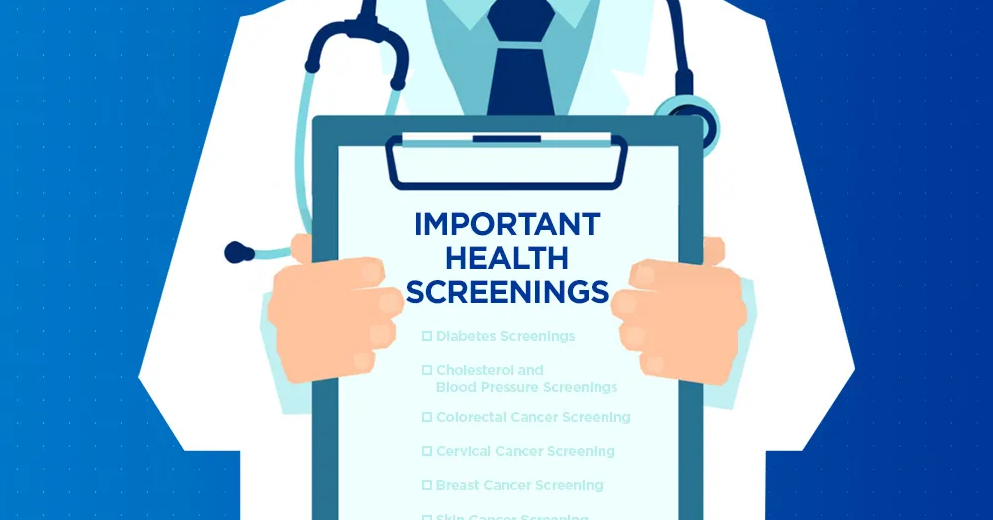Even without symptoms and indicators, health screening helps determine if you have a certain ailment. Better outcomes can be achieved through early diagnosis, treatment, and effective disease management. Determine which of the suggested health screening tests is appropriate for you.
What is medical screening?
Health screening is essential for all individuals. Utilizing testing, physical examinations, or other techniques to detect diseases early in individuals who appear and feel well. This differs from diagnostic tests, performed when an individual is already exhibiting signs and symptoms of a disease.
Why should I participate in a health screening?
Even if you feel well and have no symptoms or indicators, health screening can help determine if you have a certain disease. Early discovery, followed by treatment and effective management, can improve results and reduce the risk of severe consequences. Even if you feel perfectly healthy, it is vital to undergo screenings.
What types of screening tests should I undergo?
There are three varieties of screening tests:
Category 1
Positive for everyone: Table A has a listing of these tests.
Category 2
Profitable for some but not for others: Individual decisions are based on individual risk factors, such as personal or family history of hereditary or chronic diseases and exposure to substances that can cause disease, such as smoking. Learn more about the Category 2 test.
Category 3
These tests are not recommended for screening because there is insufficient evidence to support their use.
Consult your primary care physician, who will recommend the appropriate screening tests based on your unique health profile.
Benefits
Screenings are essential to maintaining excellent health, particularly as one age. Numerous deaths may be avoided if people underwent simple, routine health tests as advised by their doctor.
Screenings can uncover abnormalities early when the likelihood of successful treatment is highest. For instance, colon cancer is the most preventable form, but there are frequently few early symptoms when it is most treatable. A routine examination can discover a colon polyp before it turns malignant and is simple to remove.
Heart disease is the top cause of death in Missouri, but those who frequently have their blood pressure and cholesterol checked and, if required, increase their chances of preventing and treating conditions that could lead to a heart attack.
When you receive the recommended health screenings, you take a simple but crucial step toward a higher quality of life and possibly a longer life.
Getting Going
It is never too late to obtain the necessary health exams. Visit your health care provider to discuss the appropriate testing for you based on your age, gender, and family medical history.
Expectations for Health Screening
Before undergoing a health check, it is essential to comprehend the procedure to be more prepared. Here are some of the common tests used during health screenings:
- Your doctor will take your blood pressure as part of a battery of tests designed to assess your overall health. You may need additional testing to determine the cause if your blood pressure is high.
- Tests for Cholesterol – If you are fat, a heavy drinker, or a smoker, your doctor will examine your cholesterol level.
- Diabetes Test – If your blood pressure and cholesterol levels are high, or if you have a history of diabetes in your family, you will be tested for diabetes.
- Mammograms, Osteoporosis, and Pap Smear Tests are performed to prevent breast and cervical cancers and other women’s problems.
- Colorectal Cancer – This test is strongly suggested for persons over 50 with hereditary mutations or gene abnormalities, inflammatory bowel disease, and colorectal polyps.
- Tests for Prostate Cancer — Men with elevated testosterone levels, obesity, and beyond 50 years of age must undergo prostate cancer screening.
- Exams for sexually transmitted diseases are widely recommended for sexually active people, especially those with multiple sexual partners.
A health screening can take anywhere from 30 minutes to half a day, depending on the number of tests the doctor wants to perform based on your unique problem. Tests, including urinalysis, fecalysis, and x-rays, are also commonly used in diagnostics. If caught early enough, it can stop an illness or condition from becoming chronic. Also, regular checks might help spot potential health problems early on. This means that reduced mortality and morbidity rates, in addition to savings on healthcare costs, can be achieved.
Why is screening for health important? Why should I participate in health screenings?
Even if you feel well and do not display symptoms of sickness, health screening can help you determine if you have an underlying disease or condition or are at high risk. Early discovery, followed by treatment and effective management, can improve results and reduce the risk of severe consequences. In some cases with high risk, lifestyle adjustments may be sufficient to lessen the risk. Even if you feel healthy, you must undergo screenings.
Read Also: What to say to someone who is in hospice
I am a professional writer and blogger. I’m researching and writing about innovation, Entertainment, technology, business, and the latest digital marketing trends click here to go website. Follow my blog here & Visit my website here.



